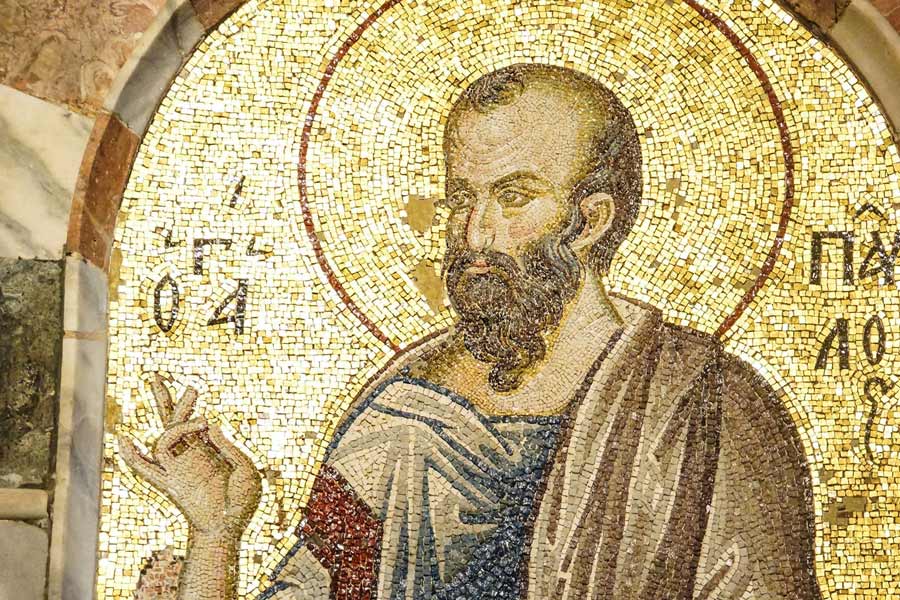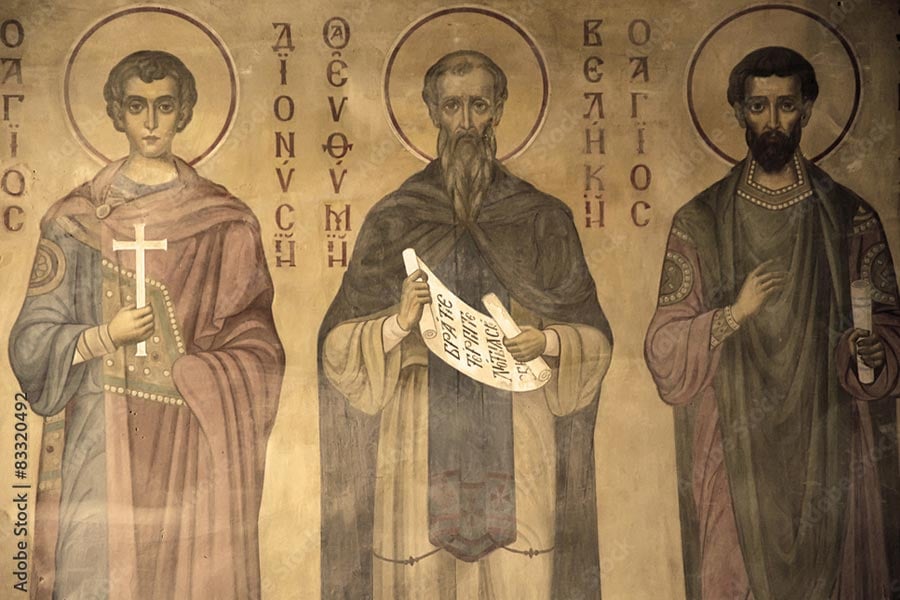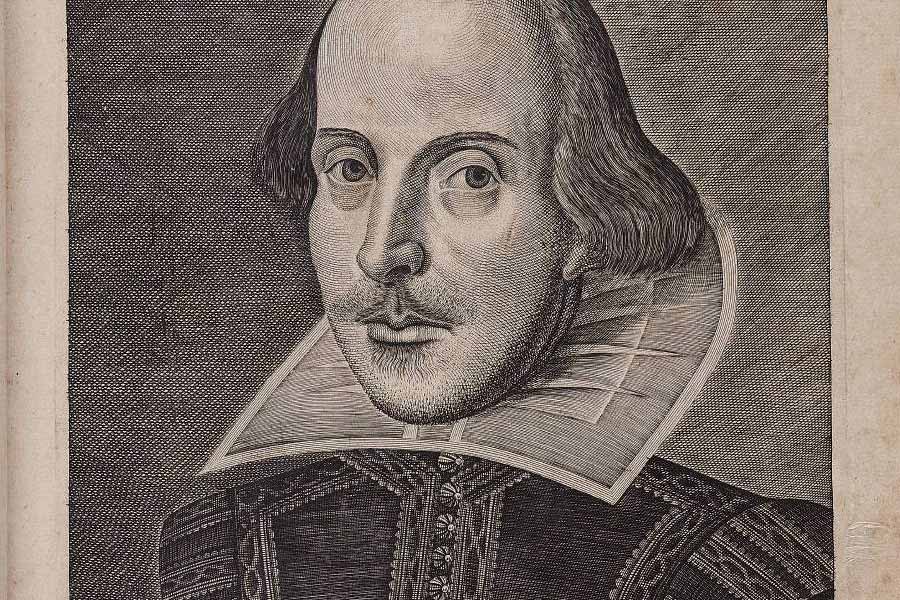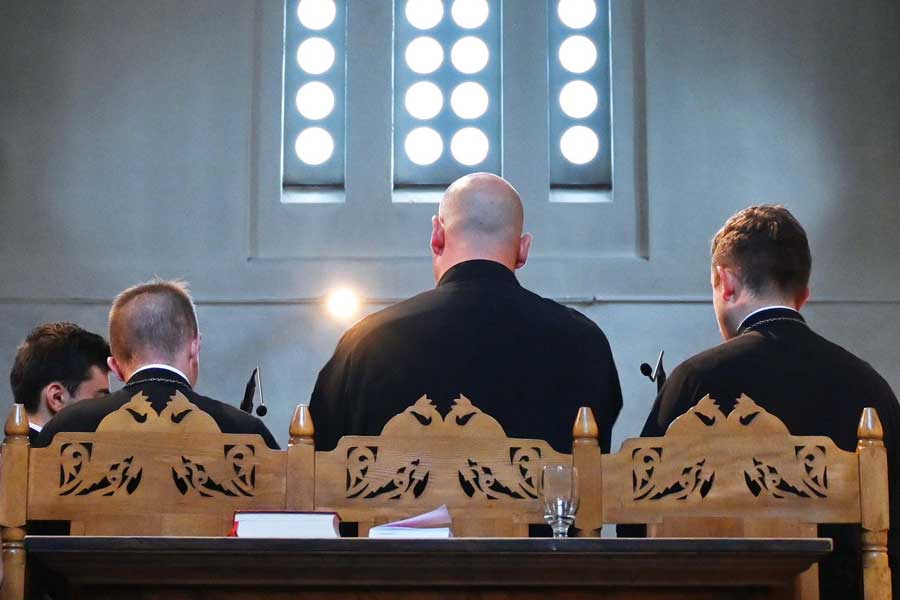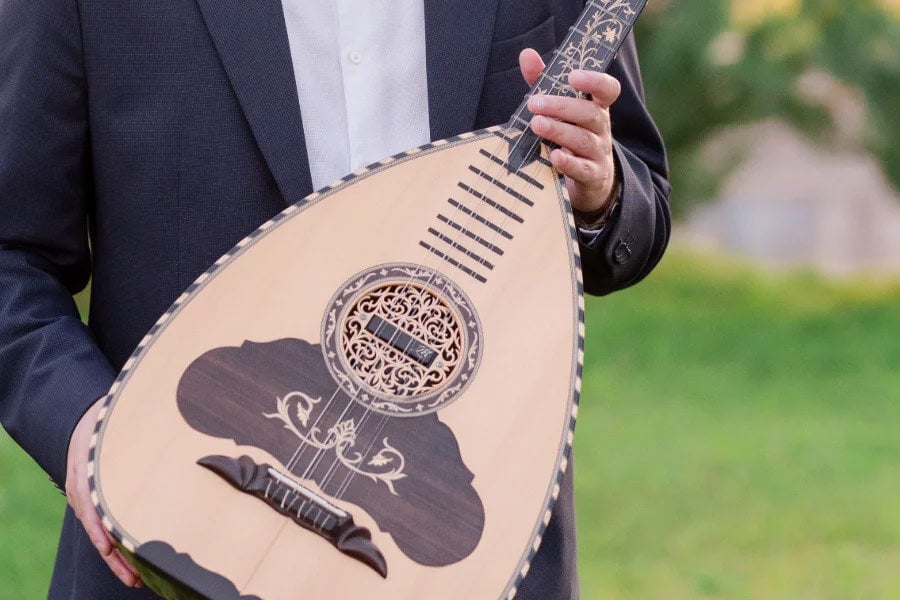HCHC | Online Courses for Summer and Fall 2025 (original) (raw)
NEWT 7015 Z1 | Summer 2025
Sunday Lectionary Readings
Asynchronous | with optional weekly Zoom discussion
This is a that introduces students to how to read the scriptures according to the lectionary of the Eastern Orthodox Church and how to interpret the readings comparatively. It is a course on Orthodox interpretation, its methods and theological foundations, focusing on the Sunday Gospel and Epistle readings in their liturgical context. The course seeks to integrate three contemporary areas or approaches to exegesis: 1) to gain an appreciation for the weekly cycle of Gospel and Epistle readings within the lectionary of the Greek Orthodox Church; 2) to be introduced to theories and methods of biblical interpretation, both contemporary academic and patristic; and 3) to provide a structured environment in which the student will be encouraged to practice each week these foundational skills used in biblical exegesis, practicing this art within the larger context ofequipping the students to use these skills for teaching, preaching, and personal spiritual formation. The course, therefore, has a very practical side, as it explores how these diachronic interpretations might be useful models to teach the stewards of God's word today.Students will periodically share their interpretive work with their classmates. Our work will use both historical, academic sources and draw from patristic writings on the scriptures, utilizing patristic homilies and hymns. Knowledge of Greek is not required but students who know Greek will find it helpful.
This course will focus on historically interpreting Scripture and how it might be done in the Church today. 
Instructor
Dr. Bruce Beck
CHST 5022 Z1 | Fall 2025
Church History I: Ecumenical Patriarchate
Asynchronous
This course offers a general introduction to the history of the Church up to the year 787. Emphasis will be placed on the main ecclesiastical and theological issues and personalities, and the study of specific key texts. Special attention will be given to the history and role of the Ecumenical Patriarchate.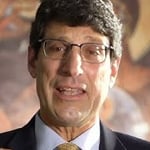
Instructor
Dr. James Skedros
CHST 7012 Z1 | Fall 2025
Early Christian Literature
Asynchronous
This course focuses on the study of several texts belonging to the general category of early Christian literature. Texts to be read include works representative of various theological tendencies and literary forms. Each work will be studied in light of its form and genre, its relation to the New Testament, and its connection to the contemporary religio-philosophical world. In addition, the historical context of each text will be examined in light of the history and development of Christianity in the first three centuries.
Instructor
Dr. James Skedros
DOGM 5002 Z1 | Fall 2025
Dogmatics I
Asynchronous
The Orthodox doctrine of the knowledge of God and the doctrines of the Trinity, cosmology, and anthropology. Emphasis will be placed on the ancient Fathers and contemporary Orthodox dogmaticians.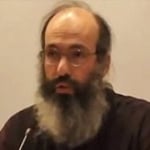
Instructor
Fr. Demetrios Bathrellos
INDS 6115 Z1 | Fall 2025
For the Life of the World
Synchronous | TBD
David Williams is a postgraduate researcher at Royal Holloway University of London, research Associate at the Institute for Orthodox Christian Studies Cambridge and Associate Professor of History at National University. From 2020–24 he directed Interdisciplinary liberal arts and Theology at the University of San Diego California. A Byzantinist by training his research and publishing explores inter-Christian and inter- faith relations between Christians and Muslims and Jews in the Medieval Mediterranean, his most recent publication is Sacred mobilities in Byzantium and beyond (Brill 2025). He is a Protodeacon of the Orthodox Church serving Southern California since 2014. Course Description: This course explores the seminal document For the Life of the World: Toward a Social Ethos of the Orthodox Church (hereafter FLOW) and the dialogue it has generated within and beyond the Orthodox Church. Through a detailed examination of FLOW and related texts, students will gain insights into how the Ecumenical Patriarchate seeks to engage with contemporary social, ethical, and environmental issues since the Great and Holy Council of Crete 2016. The need to clarify the social ethos of the Orthodox Church has been starkly illustrated on a broad scale by the frequently mishandled responses to the Covid pandemic and the Russian invasion of Ukraine, not to mention the growing complexity of pastoral care on a more personal level. Finally, the course emphasizes ecumenical and interfaith dialogue as fundamental components of Orthodox social ethics. Students will hear live lectures and discussions with the theologians that were instrumental in creating FLOW. The course will draw extensively from the newly constructed archive of articles, interviews, and reviews of FLOW available at The Huffington Institute.
Instructor
David Williams
| Fall 2025
Introduction to Greek Paleography
Synchronous | M 1:00-3:40pm EST
This semester long graduate course provides essential training in the reading of Greek manuscripts for students in historical theology and adjacent fields of ancient and medieval scholarship. Proficiency in classical Greek is required to enroll. External applicants and auditors are welcome.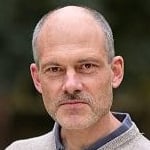
Instructor
Dr. Georgi Parpulov
INDS 6400 Z1 | Fall 2025
Strategic Management
Synchronous | T & Thu 6:30-7:50pm EST
This course focuses on the principles of strategic management and leadership as they apply to nonprofit organizations. Students will learn how to develop and implement strategies that align with the mission and goals of a nonprofit, lead teams effectively, and navigate the unique challenges of nonprofit leadership. Case studies will highlight the critical role of vision, values, and stakeholder engagement.
MDGK 5201 Z1 | Fall 2025
Beginning Modern Greek I
Synchronous | T & Thu 8-9:20pm EST
This is an intensive course in the fundamentals of grammar, syntax, and vocabulary of the Modern Greek language. Extensive practice in listening, speaking and graded reading will take place. An oral-aural method is used to develop concurrently conversational and understanding skills. Lab Required.
MDGK 6301 Z1 | Fall 2025
Intermediate Modern Greek I
Synchronous | T & Thu 8-9:20pm EST
A continuation of the study of the Greek language. A quick review of grammar and syntax with an emphasis on vocabulary building. Introduction to selected readings in Modern Greek. Required lab. Prereq: Beginning Modern Greek I and II.
INDS 6500 Z1 | Fall 2025
Philanthropy and Non-Profit Sector
Synchronous | W 6:30-8:50pm EST
This course explores the historical foundations and evolving role of philanthropy within the nonprofit sector. Students will examine how philanthropy has shaped societies, the impact of charitable giving, and the role of nonprofits in addressing social issues. Emphasis is placed on understanding the motives behind philanthropic efforts and evaluating their effectiveness in creating lasting change.
Instructor
Patrick Gorman
INDS 6600 Z1 | Fall 2025
Impact Monitoring and Evaluation
Synchronous | M 6:30 PM-8:50 PM
This course will introduce students to the work of evaluating the impact of nonprofit programs using both qualitative and quantitative methods. This is a crucial skill set for nonprofit leaders and executives especially. We will focus especially on the dynamics of evaluating "faith-based" programs tied to religious organizations such as parishes and broader church structures. Students will gain the ability to choose evaluation models to fit the context, form theories of change/logic models, identify benchmarks, design surveys, lead interview and focus group sessions, provide reports to stakeholders, and to assess the validity and usefulness of existing evaluations. We will also discuss what level of rigor an evaluation should have in order to meet the goals of stakeholders. Assignments will produce actionable evaluation items for existing or theoretical programs. The course will not require formal knowledge of statistics.
NEWT 5002 Z1 | Fall 2025
Introduction to the New Testament
Asynchronous
A required survey of the New Testament books in their historical and religious background with attention to hermeneutics, the patristic exegetical heritage, and modern biblical studies.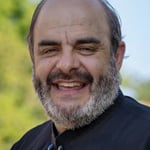
Instructor
Fr. George Parsenios
NEWT 6015 Z1 | Fall 2025
Prayer in the New Testament and Early Christianity
Asynchronous
The Orthodox Church is known for its beautiful written prayers. Together we pray words that have been spoken by Orthodox Christians for centuries. Some of our most central prayers, such as the “Thrice Holy Hymn” and the “Our Father,” draw from the Scriptures and Second Temple sources. Why do we pray the prayers of our forefathers and mothers? Why do we follow these formal patterns in our worship services? In this course, we will explore the ways that the Orthodox Church turns continually toward the well-tested patterns of prayer; we sing from a common hymnbook. This course will study select New Testament and ancient Christian prayers from the first four centuries, with attention to their scriptural and inter-testamental archetypes. Special focus will be given to prayers with biblical phrases and quotations. The “Our Father” and other prayers in the New Testament will be of special interest, including the commentaries written about them in the early patristic writings. The development of the Christian biblical odes will be also be traced, showing how Old and New Testament archetypes served as the basis for early liturgical prayers. What does this tendency toward “scripturalization” of prayers mean about the Orthodox faith? One of the learning outcomes for this course is that students will gain a greater awareness and appreciation for some of the biblical stories and characters that lie behind many of the prayers of the church, heroes of faith whom God saved through their prayers. We will thus rediscover some prayers that will inspire us today, and give us a greater appreciation for the tradition of Christian prayer and those who have prayed them before us.
Instructor
Dr. Bruce Beck
NEWT 6015 H1 | Fall 2025
Prayer in the New Testament and Early Christianity
Hybrid | TBD
The Orthodox Church is known for its beautiful written prayers. Together we pray words that have been spoken by Orthodox Christians for centuries. Some of our most central prayers, such as the “Thrice Holy Hymn” and the “Our Father,” draw from the Scriptures and Second Temple sources. Why do we pray the prayers of our forefathers and mothers? Why do we follow these formal patterns in our worship services? In this course, we will explore the ways that the Orthodox Church turns continually toward the well-tested patterns of prayer; we sing from a common hymnbook. This course will study select New Testament and ancient Christian prayers from the first four centuries, with attention to their scriptural and inter-testamental archetypes. Special focus will be given to prayers with biblical phrases and quotations. The “Our Father” and other prayers in the New Testament will be of special interest, including the commentaries written about them in the early patristic writings. The development of the Christian biblical odes will be also be traced, showing how Old and New Testament archetypes served as the basis for early liturgical prayers. What does this tendency toward “scripturalization” of prayers mean about the Orthodox faith? One of the learning outcomes for this course is that students will gain a greater awareness and appreciation for some of the biblical stories and characters that lie behind many of the prayers of the church, heroes of faith whom God saved through their prayers. We will thus rediscover some prayers that will inspire us today, and give us a greater appreciation for the tradition of Christian prayer and those who have prayed them before us.
Instructor
Dr. Bruce Beck
NEWT 7025 Z1 | Fall 2025
The Apostle Paul as Pastor
Asynchronous
This exegetically based course will explore Paul's varied pastoral responses to the differing circumstances his communities presented to him. Particular attention will be given to (1) the character and work of Paul as a shaper of communities, and (2) the manner in which Paul relies on, but also transforms, ancient patterns of moral formation and ancient styles of rhetoric.
Instructor
Fr. George Parsenios
OLDT 5001 Z1 | Fall 2025
Introduction to the Old Testament
Asynchronous
The Introduction to the study of the Old Testament is not, and cannot be, a substitute of the Old Testament, but rather a preparatory step, a reading guide, and a candid invitation to reading the Old Testament. The course is divided into two parts. The General Introduction deals with the Old Testament as history, literature, and part of the living tradition. The following topics are discussed in detail: unity in diversity of the Christian Bible, biblical text, biblical canon, and relationship between Scripture and Tradition. The Special Introduction survey the books of the Old Testament (including the anaginoskomena) and focuses on some theological themes rooted in the Pentateuch and running throughout the Old and New Testaments along with their interpretations within various hermeneutical contexts (Jewish, Christian, modern scholarship). The two themes discussed here are God and humanity.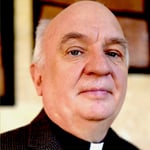
Instructor
Fr. Eugen Pentiuc
PAST 6011 H1 | Fall 2025
Theology of Pastoral Care I
Hybrid | MW 9:10-10:30am EST
As one part of your journey here at Holy Cross, this course, the Theology of Pastoral Care I, is intended to help you integrate and apply the knowledge you have acquired in other classes into your own life and in pastoral care situations. As a Field Education Course for hospital ministry, you will be placed in a local hospital for the semester. Specifically, we will explore hospital ministry as one aspect of pastoral care, as we develop a theology of pastoral care. The intent of this class is not to provide you with the right answers for pastoral situations. Rather, this course is designed, with the readings, class discussions, theological reflection groups, and assignments to develop your knowledge and skills related to hospital ministry as well as your personal identity as an Orthodox Christian seminarian and future minister or priest. Course is cross-listed as FLED 6101.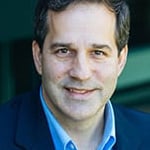
Instructor
Dr. Philip Mamalakis
PAST 6601 H1 | Fall 2025
Grief, Death and Dying
Hybrid | Thu 2:10-4:30pm EST
One cannot overstate the significance of death, and preparing for death, in understanding life and, particularly, life in Christ. Pastors and ministers are certain to be called upon to minister to those facing death and those grieving the loss of a loved one. In this course, students will develop a pastoral approach to the dying and those experiencing grief through a survey the existing literature on grief and bereavement in the context of the Orthodox theology of life after death. Students will explore the art and skill of ministering to the dying and the bereaved and develop their understanding of a theological framework for caring for the dying and the bereaved. Necessarily, this topic will touch upon our own personal experiences of loss and death, and students will be invited to explore how their own beliefs and experiences can inform and enhance their pastoral approach.
Instructor
Dr. Philip Mamalakis
PAST 6662 H1 | Fall 2025
Pastoral Care and Mental Health
Hybrid | W 2:10-4:30pm EST
Issues of mental illness and health continue to challenge pastors and ministers as they seek to guide their parishes and communities. Recent events related to the pandemic have increased the rates of mental illness in our communities, heightened the need for pastors to possess a basic level of competency related to understanding mental health and illness. Mental illness and health, how we define it, how we identify it, and how we address it calls into question how we understand God, human nature, the person, free will/personal agency, and the relationship that these issues, theologically, have with the broad field of mental health, commonly referred to as psychology. This class will explore these issues as they apply to the most prevalent issues of mental health that a pastor/priest/minister will encounter in the parish. Special emphasis will be placed on the relationship between theology and psychology and the role of the pastor/priest/minister in ministering to people struggling with issues of mental health in the parish.
Instructor
Dr. Philip Mamalakis
PATR 5011 Z2 | Fall 2025
Patrology I
Asynchronous
This introductory core-course serves as a general introduction to the Fathers and the main periods of Patristic Literature from post-apostolic times to the Council of Nicaea in the fourth century. The course combines an introduction to the central Fathers of this period, with attention not only to the doctrinal issues, but also the literary, historical, and cultural context of this period.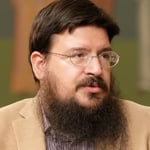
PATR 5011 Z1 | Fall 2025
Patrology I
Synchronous | F 2:10-4:30pm EST
This introductory core-course serves as a general introduction to the Fathers and the main periods of Patristic Literature from post-apostolic times to the Council of Nicaea in the fourth century. The course combines an introduction to the central Fathers of this period, with attention not only to the doctrinal issues, but also the literary, historical, and cultural context of this period.
PATR 5040 Z1 | Fall 2025
St. Gregory the Theologian
Synchronous | M 6:30-8:50pm EST
St Gregory Nazianzen is honored alongside St Basil the Great and St John Chrysostom as one of the Church's Three Holy Hierarchs and Great Ecumenical Teachers. Surnamed 'the Theologian,' Gregory was one of the chief architects of the Church's Trinitarian theology in the fourth century, contributing in a special way to the Christian confession of the divinity of the Holy Spirit. In this course, we explore the seminal contributions of St Gregory the Theologian through a close reading of his monumental Orations, offering students the opportunity to encounter the rhetorical masterpieces, festal homilies, and polemic that shaped the hymnography of the Byzantine church and the later dogmatic formulations of the Church Fathers. Prerequisites: none (Patrology I and Dogmatics I strongly recommended) Required texts: [1] Brian E. Daley, Gregory of Nazianzus, The Early Church Fathers (Routledge, 2006); [2] Frederick Williams and Lionel Wickham, St Gregory of Nazianzus on God and Christ: The Five Theological Orations and Two Letters to Cledonius, Popular Patristics Series 23 (St Vladimir's Seminary Press, 2002).
MDGK 5201 & 5212 | Summer 2025
Beginning Modern Greek I-II
Synchronous | TBD
A growing emphasis on reading, vocabulary building and writing as well as an extensive use of oral sills acquired in the first semester.
MDGK 6301 & 6312 | Summer 2025
Intermediate Modern Greek I-II
Synchronous | TBD
This class is a continuation of Beginning Modern Greek with further review of grammar and syntax and also a growing emphasis on speaking, reading, and vocabulary building, together with an introduction to selected readings in Modern Greek. Beginning Modern Greek I-II.
Instructor
Dr. Stamatia Dova
MDGK 6401 & 7234 | Summer 2025
Advanced Modern Greek I-II
Synchronous | TBD
This class is a continuation of Intermediate Modern Greek with further review of grammar and syntax and also a growing emphasis on speaking, reading, and vocabulary building, together with an introduction to selected readings in Modern Greek. Intermediate Modern Greek I-II.
Instructor
To be announced
ENGL 3315 Z1 | Fall 2025
Major British Writers
Synchronous | T 9:10-11:30am EST
Area studies in works written in the Renaissance, Romantic, and Victorian eras. The course will pay particular attention to the cultural context and changing literary traditions in which major authors lived and wrote. Prerequsites: ENG 1101/1202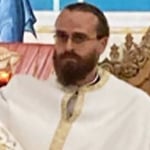
Instructor
Fr. Anthony Gilbert
INDS 3015 Z1 | Fall 2025
Teaching Through Sacred Story
Synchronous | W 12:40-3pm EST
What are the elements of a good story, and of a story well-told? What is it about story-telling, especially oral storytelling, that taps so deeply into human feeling, understanding, and memory? This course will give students a foundational understanding and appreciation for the art and science of telling stories out loud, discussing the symbolic and mythological vocabulary which account for the power of story. Students in this course will engage with the storytelling craft like never before, opening the way for a lifetime of the intense joy experienced with communities established around sacred stories.
Instructor
Anna Conomos-Wedlock
MDGK 1201 Z1 | Fall 2025
Beginning Modern Greek
Synchronous | T & Thu 8-9:20pm EST
Beginning Modern Greek I is a 6-credit course designed for students with little or no previous instruction in Modern Greek. The goal of this class is to work to- wards proficiency in Modern Greek through cumulative acquisition of speaking, listening, and writing skills. We will be studying elementary aspects of the Modern Greek language based on introductory readings (focusing on grammar and syntax as well as conversation and translation) and practicing the newly acquired material. Required lab.
MDGK 2301 Z1 | Fall 2025
Intermediate Modern Greek
Synchronous | T & Thu 8-9:20pm EST
Intermediate Modern Greek I is a 3-credit course de- signed for students with previous instruction in Modern Greek equivalent to two 6-credit semesters of aca- demic work (a total of 12 credits). In this class we work towards conversational fluency , listening comprehension and essay/sermon composition in Modern Greek. Required lab.
MGMT 3250 Z1 | Fall 2025
Strategic Management
Synchronous | T & Th 6:30-7:50pm EST
This course focuses on the management process involved in strategic planning. Students will study the issues involved in the creation, formulation, and implementation of strategy and policy. Through discussion and case study, students will evaluate the risks and alternatives of strategic planning and how management philosophies can affect strategy.
MUSB 4831 Z1 | Fall 2025
Byzantine Music IX
Synchronous | F 2:30-4:30pm EST
The material taught in this course is equivalent to the material taught in the fourth year of Greek conservatories and provides comprehensive preparation for the final examination required for a Holy Cross Certificate in Byzantine Music. Students are expected to become competent in performing more technically demanding repertoire, including Gregory Protopsaltis’ cherubic hymns, Petros the Peloponnesian’s communion hymns, Petros the Peloponnesian’s Kyrie I en pollais amartiais, Ioannis Koukouzelis’ Anothen oi profitai, the ancient hymn Ton despotin kai archierea, and the anaphora hymns for the Divine Liturgy of St. Basil. Prerequisites: Byzantine Music I–VI.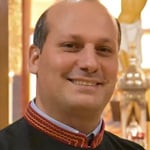
Instructor
Georgios Theodoridis
MUSW 2500 Z1 | Fall 2025
The Music of Epirus
Synchronous | Thu 1:10-3:30pm EST
The Music of Epirus will focus on the region’s historical, cultural, and musical significance. The course will delve into the region’s distinctive polyphonic singing and instrumental traditions, while exploring how these forms of music have influenced Greek cultural identity. The curriculum will include: In-depth analysis of Epirotic music Listening sessions Discussions on the evolution and contemporary impact of Epirus music Guest lectures and performances by celebrated musicians, including clarinet virtuoso Petroloukas Halkias and violinist Kostas Kostagiorgos from Epirus. This course is designed to offer an immersive educational experience that links historical traditions with modern musical practices.
Instructor
Vasilis Kostas
NPLM 3500 Z1 | Fall 2025
Philanthropy and Non-Profit Sector
Synchronous | W 6:30-8:50pm EST
This course explores the historical foundations and evolving role of philanthropy within the nonprofit sector. Students will examine how philanthropy has shaped societies, the impact of charitable giving, and the role of nonprofits in addressing social issues. Emphasis is placed on understanding the motives behind philanthropic efforts and evaluating their effectiveness in creating lasting change.
Instructor
Patrick Gorman
NPLM 3600 Z1 | Fall 2025
Impact Monitoring and Evaluation
Synchronous | M 6:30-8:50pm EST
This course will introduce students to the work of evaluating the impact of nonprofit programs using both qualitative and quantitative methods. This is a crucial skill set for nonprofit leaders and executives especially. We will focus especially on the dynamics of evaluating "faith-based" programs tied to religious organizations such as parishes and broader church structures. Students will gain the ability to choose evaluation models to fit the context, form theories of change/logic models, identify benchmarks, design surveys, lead interview and focus group sessions, provide reports to stakeholders, and to assess the validity and usefulness of existing evaluations. We will also discuss what level of rigor an evaluation should have in order to meet the goals of stakeholders. Assignments will produce actionable evaluation items for existing or theoretical programs. The course will not require formal knowledge of statistics.













